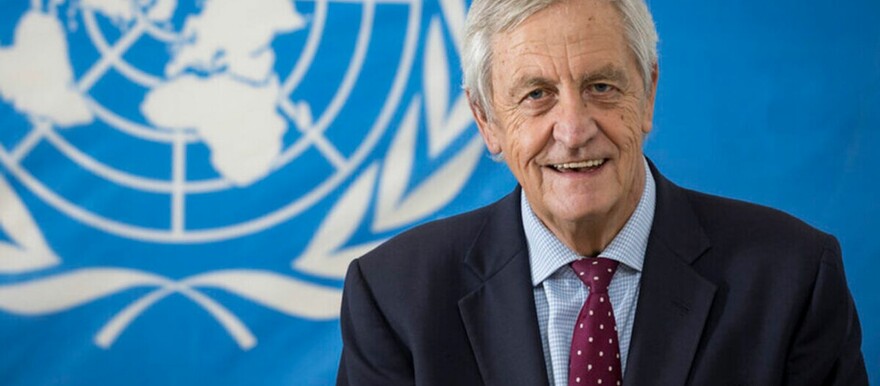The Special Representative of the Secretary-General and Head of UNMISS, Nicholas Haysom, on Wednesday, while briefing the meeting of the African Union Peace and Security Council, said South Sudan had missed key timelines in the implementation of the peace agreement.
Haysom noted with concern that deadlines related to the Political Parties Council, the Reconstituted National Constitutional Review Commission (RNCRC), and the establishment of the Constitutional Drafting Committee (CDC) have been missed.
“We want to urge the South Sudanese that the two-year extension should not be regarded as a holiday break and that delays are already having a domino impact on subsequent processes,” he said. “That is why, at the request of your Council, the United Nations, the AU Mission in South Sudan (AUMISS), the Intergovernmental Authority on Development (IGAD), and the Reconstituted Joint Monitoring and Evaluation Commission (RJMEC) have formed a Trilateral Taskforce on Permanent Constitution-Making and Electoral Processes Support.”
He said that a tracking mechanism is being developed to better target the UN’s advocacy and support to the parties.
“We hope that the permanent constitution-making process can start without further delay. This is the foundation of a new social contract between the government and its citizens, and as between its citizens,” Haysom said. “I note that the Peace Agreement prescribes civic and voter education on both the constitution-making and electoral processes and we look forward to an eventual roll-out of civic education, political engagement, and creation of an enabling environment for healthy national debates. UNMISS stands ready to support the government in this regard.”
The UNMISS chief said subnational violence continues to drive a humanitarian crisis in South Sudan, with next year’s projections estimating 9.4 million people in need of lifesaving, and in particular food assistance.
“This represents a significant increase of almost half a million people compared to the estimates in 2022. The situation is made worse by collective challenges like climate and flooding,” he said. “While humanitarian personnel is working tirelessly to offer shelter, health care, food, water, and sanitation support, needs continue to outstrip the resources to respond.”
Haysom however reported some significant developments which he said included the consensus of the parties to the Revitalized Peace Agreement on a Roadmap to extend the transitional period to February 2025.
“The wheels of parliament are now turning. The TNLA has passed essential bills, including the Constitution Making Bill. I particularly welcome President Salva Kiir’s directive that parliamentarians continue working until critical legislation underpinning the Roadmap is passed, rather than taking an early recess,” he reported. “I welcome the graduation of the first phase of the Necessary Unified Forces that is the integrated forces – with only Bentiu remaining. “Phase two” must receive adequate logistical and political support. It’s essential that deployment plans are finalized and implemented so that the force can begin to protect civilians and contribute to inter-communal harmony.”
The UNMISS boss said that the implementation of the Roadmap requires funding and urged the Transitional Government to allocate the necessary resources.
“UNMISS continues to remind the parties that further donor support, in particular, will be contingent upon their making effective and timely implementation of the benchmarks,” Haysom cautioned. “On that note, UNMISS is mindful that preparations for elections need to start soon. The National Constitutional Amendment Committee (NCAC) has completed its review of the National Elections Act. This is the first step in providing the legal basis for the reconstitution of the National Elections Commission (NEC) which will be the sole custodian for all electoral processes.”




